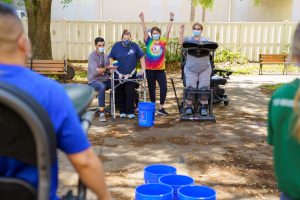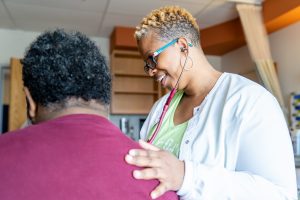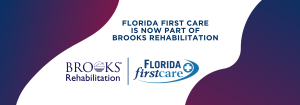Mental Wellness and “Integrated Care”
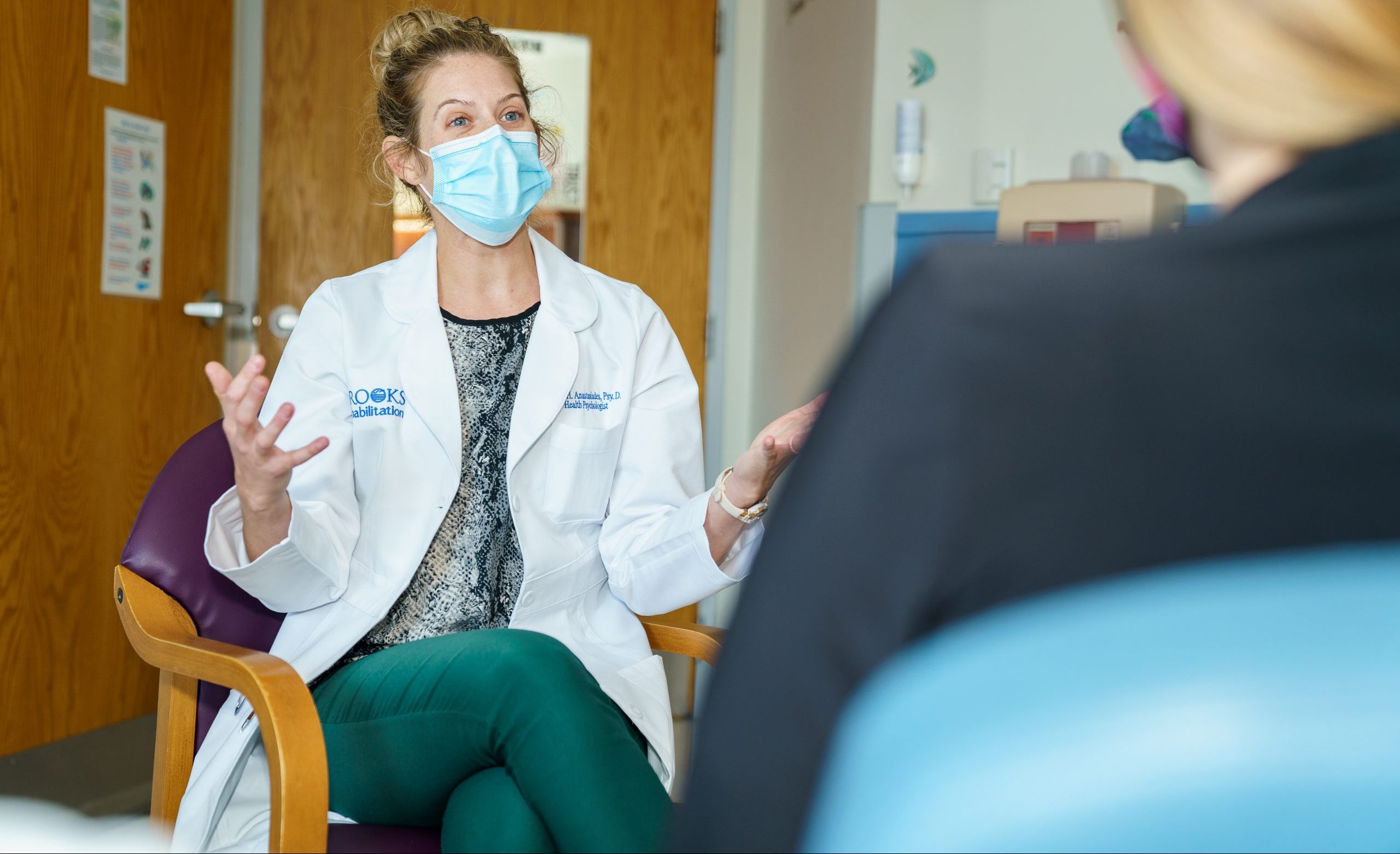
Back to physical health resource hub
The term “integrated care” is one we hear more and more often in today’s healthcare environment. What does it mean, exactly, and what does in mean in rehabilitation medicine, especially regarding mental healthcare as practiced at Brooks?
According to the World Health Organization (WHO), integrated care is defined as:
“…an approach to strengthen people-centered health systems through the promotion of the comprehensive delivery of quality services across the life-course, designed according to the multidimensional needs of the population and the individual and delivered by a coordinated multidisciplinary team of providers working across settings and levels of care.”
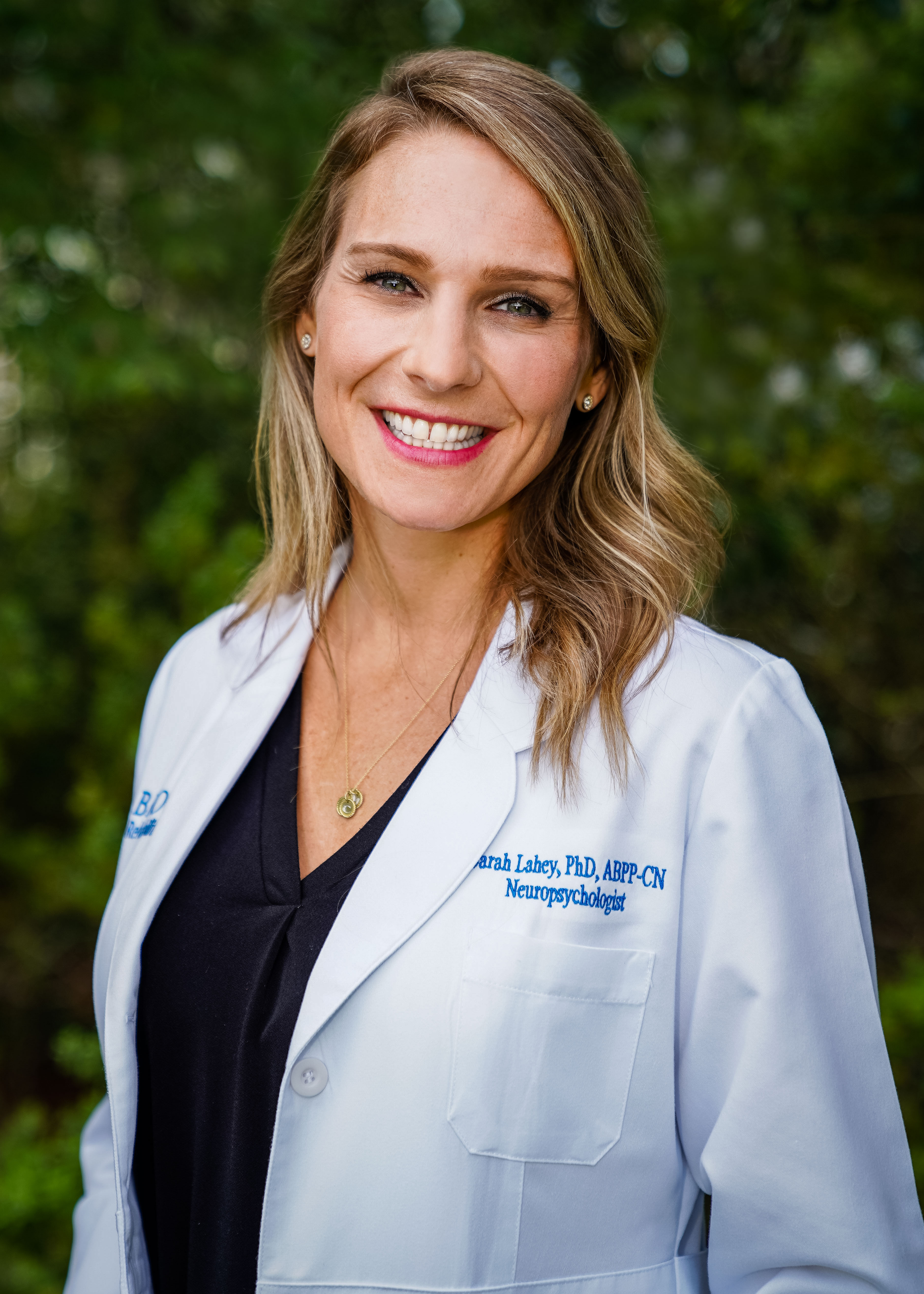 Sarah Lahey, PhD, ABPP-CN, a neuropsychologist and Manager of Psychological Services at Brooks Rehabilitation, and Maria Anastasiades, PsyD, a clinical health/rehabilitation psychologist at Brooks, both see firsthand the way Brooks practices integrated care. They are part of the team that ensures that the mental health aspect of a patient’s recovery is fully addressed.
Sarah Lahey, PhD, ABPP-CN, a neuropsychologist and Manager of Psychological Services at Brooks Rehabilitation, and Maria Anastasiades, PsyD, a clinical health/rehabilitation psychologist at Brooks, both see firsthand the way Brooks practices integrated care. They are part of the team that ensures that the mental health aspect of a patient’s recovery is fully addressed.
“In a traditional medical model, a person comes in presenting symptoms, the physician treats those symptoms and then sends the individual on their way,” said Dr. Lahey. “It’s treating symptoms, not the whole person. The rehab setting, by its nature, is a platform for integrated care. At Brooks, the rehab model is to restore function, to get the person back to their activities they love to do in their own environment. It’s very patient-centric.”
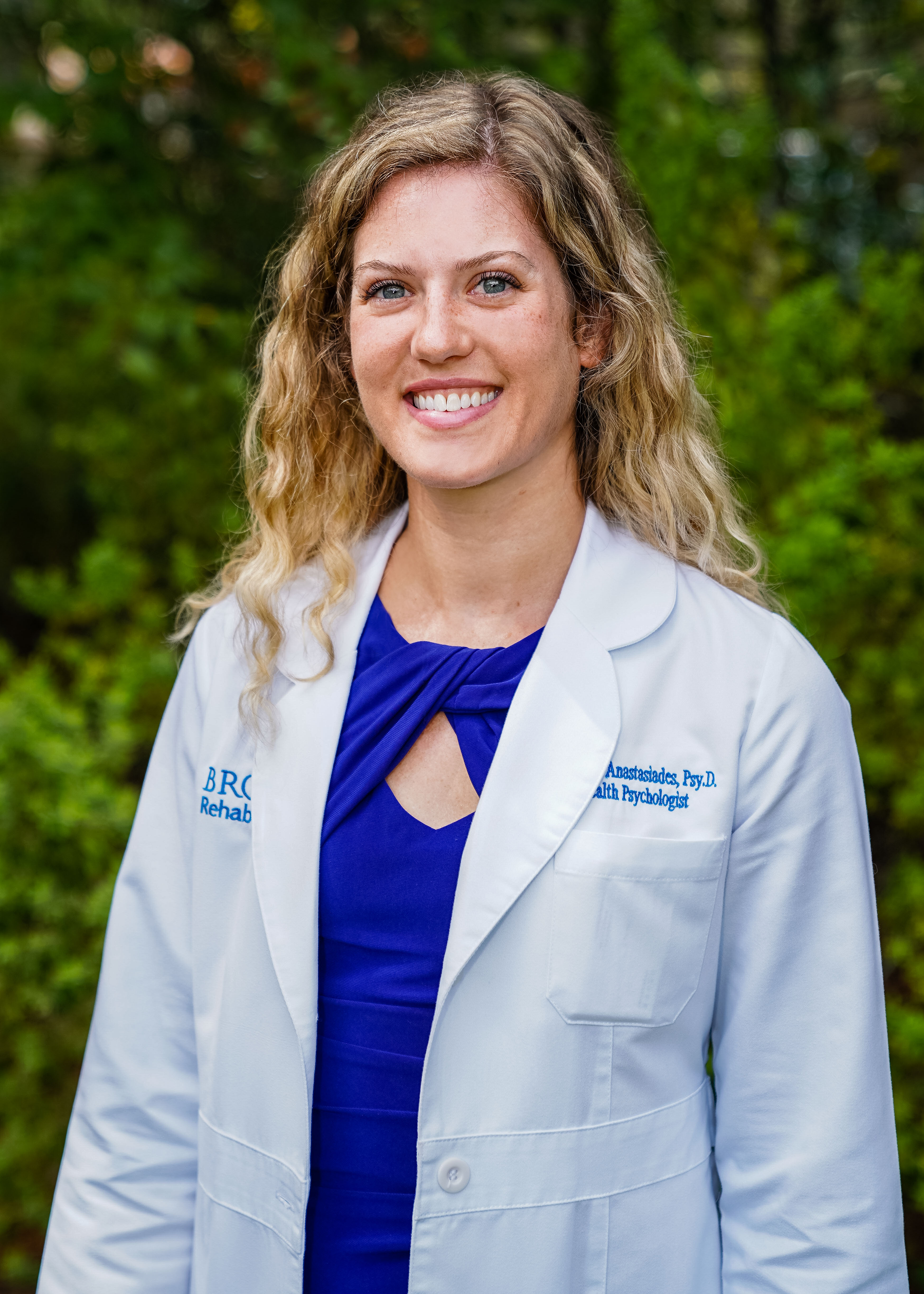 “All my training pretty much has been in integrated care,” said Dr. Anastasiades. “The idea is that the whole person is treated within the healthcare system – all their needs are addressed. There are decades of research showing that integrating care leads to better outcomes. Now, other healthcare providers and payers are acknowledging it.”
“All my training pretty much has been in integrated care,” said Dr. Anastasiades. “The idea is that the whole person is treated within the healthcare system – all their needs are addressed. There are decades of research showing that integrating care leads to better outcomes. Now, other healthcare providers and payers are acknowledging it.”
Better outcomes is an excellent reason to set up an integrated care model, and for Brooks that also means the commitment to incorporating mental health providers from Psychological Services into the team. In many other systems the mental health components are siloed, or as Dr. Anastasiades said, “…kind of separate floating entities off on their own.”
There should never be any stigma attached to talking to mental health providers, and Brooks psychologists are introduced to patients in the same way as physicians, nurses or therapists would be – they’re a normal part of the integrated care team showing the ways they can help. Whatever the entry point into the Brooks system, Brooks Psychological Services performs a type of triage to make sure people get what they need. Sometimes patients need just a brief assessment, others get more care. And so, while Psychological Services are available throughout recovery whenever they’re needed, there’s plenty of evidence that even a single session can make a big difference for a patient.
As part of integrated care, Psychological Services remains a resource for patients to come back to, whether it’s directly through them, through Adaptive Sports and Recreation, coming back to the Neuro Recovery Center or other programs. It’s a type of open-door policy throughout the entire trajectory of recovery.
Patients aren’t the only ones who benefit from Psychological Services as part of integrated care – it extends to family members also. Anytime a serious event occurs, it affects not only the patient but those around him or her. So, Psychological Services acknowledges those present and incorporates them as much as they need to. There is a dedicated patient and family counselor who will meet with family members completely separately. Brooks is committed to providing these family services for free, regardless of any insurance reimbursement.
“It’s sounds so cliche, but it’s wonderful to work with an organization like Brooks that values patient-centered care, and not just saying it – but really showing and living it,” said Dr. Lahey.
“The point of integrated care is that it acknowledges that wellness takes many forms,” said Dr. Anastasiades. “And at any time in your recovery trajectory and wellness trajectory you may need a mental health touchpoint to stay on course. Brooks offers those touchpoints in a myriad of different ways.”
Telehealth and Integrated Care
If there is any good to come out of the COVID-19 era, it’s the increased use of telehealth in new and innovative ways. With stay-at-home orders in full swing, telehealth gave access to people who would otherwise have had to cancel sessions and appointments. And, if Medicare reimbursement restrictions continue to be loosened or lifted altogether for Telehealth, the elderly and disabled will benefit the most.
“Telehealth adds so much, especially for those folks who might drop through the cracks because of access issues. Telehealth is a game changer in that regard. And it speaks to integrated care pretty significantly, because we’re meeting them in their environment, acknowledging what their needs are, and eliminating those barriers so they can get what they need.” – Dr. Maria Anastasiades
